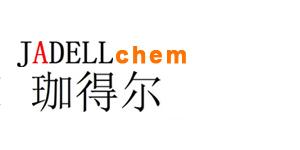Recombinant Mouse Interleukin-4 (CHO-expressed) 是一种 CHO 细胞来源的特异性细胞因子,促进 B 淋巴细胞的增殖,分化和细胞表面蛋白调节。
Synonyms
rMuIL-4; BSF-1; Binetrakin; Lymphocyte stimulatory factor 1; Pitrakinra
Species
MouseSource
CHO Accession
P07750 Gene ID
16189 Molecular Weight
Approximately 15 kDa AA Sequence
HIHGCDKNHL REIIGILNEV TGEGTPCTEM DVPNVLTATK NTTESELVCR ASKVLRIFYL KHGKTPCLKK NSSVLMELQR LFRAFRCLDS SISCTMNESK STSLKDFLES LKSIMQMDYS Biological Activity
The ED50 is <2 ng/mL as measured by murine HT-2 cells, corresponding to a specific activity of >5 × 105 units/mg. Appearance
Lyophilized powder. Formulation
Lyophilized after extensive dialysis against PBS. Endotoxin Level
<0.2 EU/μg, determined by LAL method. Reconstitution
Reconstitute the lyophilized recombinant Murine Interleukin-4 (CHO-expressed) (rMuIL-4) to 100 µg/mL using ddH2O or diluted with PBS. Storage & Stability
Lyophilized recombinant Murine Interleukin-4 (CHO-expressed) (rMuIL-4) is stored at -20°C. After reconstitution, it is stable at 4°C for 1 week or -20°C for longer. It is recommended to freeze aliquots at -20°C or -80°C for extended storage. Shipping
Room temperature in continental US; may vary elsewhere. Background
Mouse Interleukin 4 is a 20-kDa glycoprotein, synthesized by activated T lymphocytes and mast cells, which regulates the growth and/or differentiation of a broad spectrum of target cells of the immune system, including B and T lymphocytes, macrophages, and hematopoietic progenitor cells. Murine Interleukin 4 (IL-4) is a potent mediator of an immune response, affecting both the growth and differentiation of a wide variety of cells in the hematopoietic lineage. This cytokine is expressed by activated T lymphocytes and mast cells as a 20-kDa glycoprotein. The cDNA for IL-4 isinitially is solated by two laboratories, using expression vectors and screening for either a IgG-inducing factor or a mast cell growth factor. The derived amino acid sequence from the cDNA clones is used to predict a protein backbone for IL-4 of 14 kDa. This is consistent with the observation that N-glycanase treatment of natural IL-4, to remove N-linked carbohydrates, yields a protein core of 14 kDa. Initial experiments with deglycosylated native IL-4 and with deglycosylated recombinant IL-4, expressed initially in yeast as a heterogeneous, hyperglycosylated molecule, suggested that the carbohydrate modifications of IL-4 do not affect its ability to bind to receptor and to stimulate T and B cell growth[1]. |



